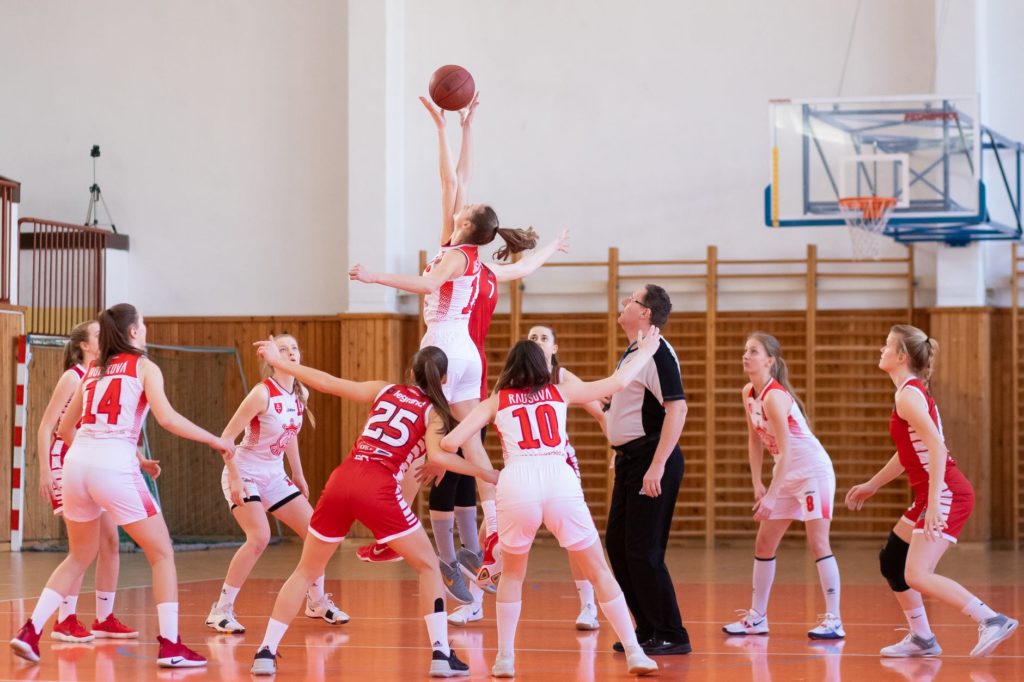
Balancing School and Extracurricular Activities
It’s Sunday night and Sarah is looking at the calendar for the upcoming week. Between her two children, there are four baseball practices, two baseball games, a musical instrument lesson, two dance classes, religious school, and volunteering at the local pet shelter. She also knows that her daughter has a math test and an English essay due by the end of the week, and her son is working on a group project for history plus has a biology quiz and a novel to finish for his honors English course.
Sound familiar? Our kids are BUSY. And while it is exciting and gratifying to be able to provide children with a wide array of opportunities, we need to remember that time is finite and helping them manage and minimize their stress is an important aspect of parenting.
Extracurricular activities can be very beneficial and rewarding for children. Exposing them to a variety of opportunities — such as athletics, musical instruments, scouting, religious school, theater, part time jobs, and beyond — helps to enrich their lives and make them more well-rounded and interesting people. Some of the intrinsic benefits of young people participating in activities outside of school include:
- Allowing them to explore different activities and discover things they may be interested in or have a natural affinity for.
- Boosting their self esteem outside of the classroom.
- Teaching them responsibility and time management.
- Helping to develop a sense of commitment and responsibility.
- Providing a productive break from studying.
- Making new friends outside of school and the neighborhood.
- Building a strong resume for future educational and employment opportunities.
- Improving students’ chances for college acceptance.
Even with all of these benefits, however, it’s important to make sure that school and academic responsibilities are the top priority for your children and that they are not overwhelmed. It is not uncommon for your kids to find that extracurricular activities are more fun than completing homework or studying, but they need to always know that school comes first.
When Is It Too Much?

Dr. Jerry Bubrick, a clinical psychologist at the Child Mind Institute, offers a valuable barometer for determining if our kids are overscheduled: “Can you still do your homework? Can you still get 8+ hours of sleep each night? Can you still be a part of your family? Can you still hang out with your friends? If the answer is ‘no’ to one or more of these, then it’s too much.”
While it’s tempting to let our kids sign up for all the different activities or programs they want to do, it can definitely be detrimental to be overscheduled. Some of the negative effects include:
- Being under too much pressure.
- Developing issues related to anxiety and stress.
- Disrupted/not enough sleep.
- Never having any free or “down” time.
- Isolation and not spending time with friends.
- Negative impact on grades and academic performance.
Finding a Balance

The first step in figuring out how to balance school with your child’s extracurricular activities is to make sure they have a clear understanding that school is the number one priority. If their grades start to drop or they are getting woefully behind with their school work, then they may have to cut back on their activities outside of school. Since many students are enthusiastic about the activities they participate in, this should give them the necessary motivation to keep up with school work and make academics a priority, Here are some things to keep in mind when helping your children manage both school and their activities:
- School First! School is your child’s “job” from ages 5-18 (and beyond for those who pursue a higher education) and needs to always be the top concern. With this in mind, make sure that their schedules include sufficient time for studying and completing schoolwork and then work any extracurricular activities around that time. Your student’s academic aptitude will determine how much time he or she needs to set aside for studying and homework. Some students need more time than others in general, and that’s just a reality that they have to deal with as they determine how much time they can dedicate to extracurricular activities. Another valuable tool for helping your student stay on track academically is to hire a private tutor to help with school work. Many people assume their child only needs a tutor if he or she is struggling in school, but even those who are doing fine in school may be more capable of staying on top of their school work when working with a tutor who can guide them. At Synergy Academics, our tutors are flexible and can meet with your student at a time that works best for your family, and that does not conflict with his or her extracurricular activities.
- Adjust When Necessary: Whether it’s midterms, final exams, a big project, or an important essay, there are going to be times during the school year when students will need to spend more time on their schoolwork. Generally, students will know early in the term when these milestone dates are and can plan accordingly. Planning should include getting to work early on long term assignments (such as projects or essays) so they don’t find themselves having to cram in order to complete them on time and/or knowing that they may have to spend less time with their extracurricular activities during the time when academic demands are high. For example, students with part time jobs may want to let their supervisors know that they need to cut back their hours the week before finals.
- Use A Planning Tool: Whether it’s a physical planner or an app on their phones, having a planner can be very useful in helping students manage their lives. For younger children, this tool may be something that parents manage and monitor, but as students move up to middle and high school students, they will gradually become more independent in managing their own schedules. If they are resistant to using a planner, just keeping a “To Do” list can be equally helpful. It can sometimes be completely overwhelming to think about all the homework for multiple courses, plus time commitments for activities such as a sports team or a theatrical performance. The planner will allow students (and you) to keep track of all of the important dates with regard to their schoolwork (homework due dates, projects, essays, tests, etc.). Seeing it written (or typed out) allows the student to plan ahead and schedule time for studying that doesn’t conflict with other activities. Using a helpful planning tool is a great way to teach students time management skills, which is something they can use throughout their lives.
- Prioritize Activities and Reassess When Necessary: Make sure your child knows what’s coming up in school and whether there will be conflicts between school and activities. There may be times during the school year, or even a particularly challenging school year, when children simply cannot handle the demands of both a rigorous academic load and multiple extracurricular activities. If this is the case, then it may be time to reassess and cut back on outside activities. For example, a high school junior who is taking three or four AP/Honors courses may just not have the time to be on the varsity soccer team and decide to take a season off. As long as that student isn’t planning to play soccer in college, that may be a prudent decision. Or perhaps a middle school student is struggling in a couple of classes and doesn’t have time to finish homework and take ballet, tap and hip hop dance classes each week, so he or she cuts back to just ballet until his or her academic workload becomes more manageable. Helping your child assess the situation and make these decisions can alleviate a great deal of anxiety for both of you!
- Don’t Forget Downtime: Kids today are under so much pressure to achieve academically, socially and in extracurricular activities that it can be truly overwhelming. From the moment they wake up until they collapse into bed each night (often too wound up to fall asleep!), it’s one thing after another: school, sports practice, dance class, religious school, homework, bed. It’s important for all of us to have some downtime. Whether that means spending time with friends, reading a good book just for fun, going to the gym, walking the dog, or just relaxing with the family, downtime gives our brains a chance to unwind and stress levels to go down. And while many kids will be tempted to turn to a screen (video games, phone, television), Susan Bartell, a nationally recognized parenting expert, author and child psychologist, states, “The surprise for most parents is that this is not actually downtime. Video games and all other screen-related activities require a child to be fully engaged in problem-solving, competition or socializing – and sometimes all three. A primary reason why kids have trouble falling asleep is that they’re staring at screens too close to bedtime. The activity is overstimulating, rather than calming, and the light from the screen tricks the brain into staying awake, rather than preparing the child for sleep.” She further notes that true downtime not only allows your child to relax but also gives his or her brain time for “consolidating memories from the day, reviving focus and attention and renewing your child’s drive to learn. If you have ever had the experience of solving a problem during a long shower, you understand the importance of downtime for the brain.”
The bottom line is that our kids are only young once. Being able to give them enriching opportunities outside of school is a great blessing, but making sure that their stress and anxiety levels are low and that they grow up with wonderful, happy memories of their childhood is the greatest gift of all.



